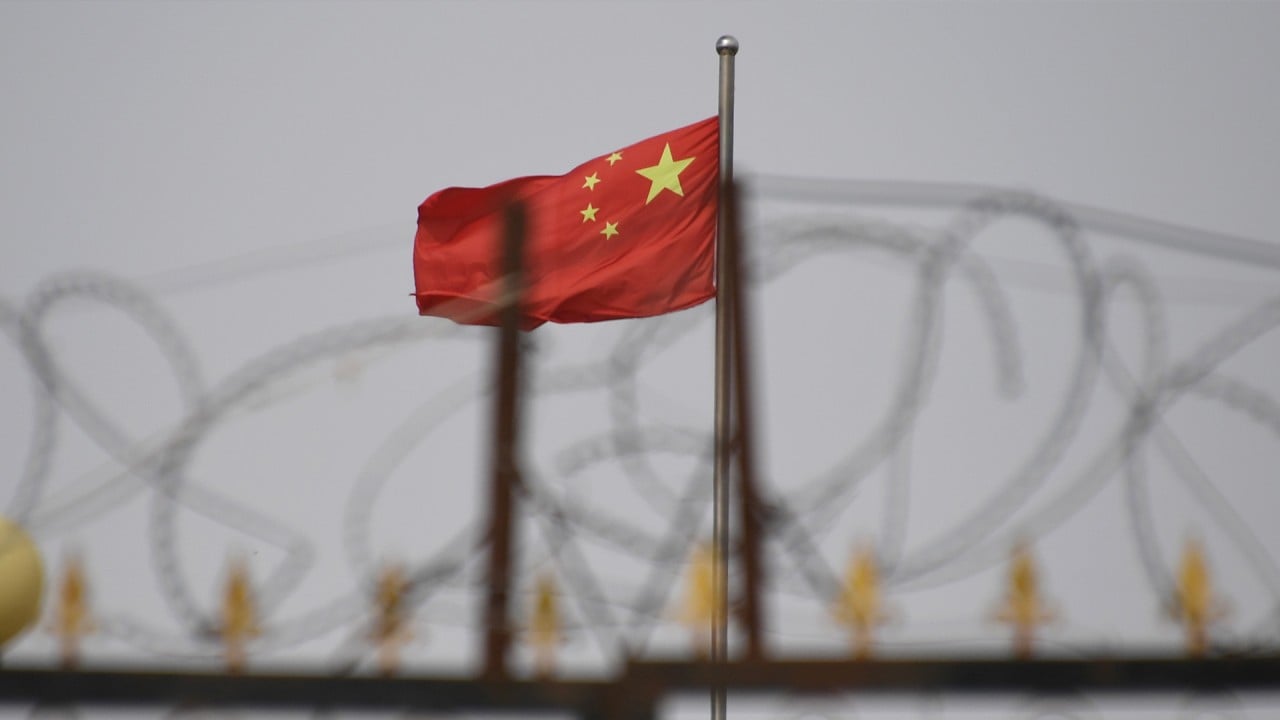
‘China needs new playbook’ to counter EU’s tougher trade and investment rules
- Potential strategies include tightening Beijing’s own legislation, finding areas for joint projects and offering more market access to European firms, academic says
- Chinese companies also need to be aware that a range of incentives and tax breaks could be considered state subsidies, he says
“More importantly, [China] should deepen cooperation with Europe to stop the tendency of Europe and the United States to align their economic and trade policies towards China,” Hu said in an analysis of the EU’s latest economic and trade defence tools in Pacific Journal, an academic magazine.
He said potential areas for cooperation included construction of undersea cables and infrastructure programmes in Africa.
China could also offer more market access to European companies “to further bind European economic interests … so that the EU and European companies will not blindly follow the US in countering China”.
As part of efforts to assert its strategic autonomy from China and the US, the EU has also been strengthening its scrutiny of investment in a move widely seen as targeting China, its “an economic competitor and a systemic rival”.
“This is a very clear signal to China that the EU is becoming increasingly defensive against China and is undertaking concrete measures designed to ratchet up pressure on China,” Hu wrote.
Unlike the US, which has long screened foreign investment for security threats, Europe had been reluctant to use tools to scrutinise deals until recent years, when a number of governments, wary of China’s growing economic clout in the region, called for a Europe-wide mechanism for more rigorous vetting of foreign takeovers.
The concern is particularly high in the technology industry, where Beijing is looking to sharpen its competitive edge to compete with the US for future technological supremacy.
To that end, in 2019, the EU adopted its first bloc-wide investment screening regulation to impose systematic scrutiny on any deals with potential concerns over national security and public order.
In 2020, the European Commission also outlined proposals intended to prevent foreign firms from using government subsidies in the form of grants, loans or tax credits to outbid competitors to acquire European assets.
Last year, the European Parliament voted by an overwhelming majority to adopt a binding EU law that requires businesses to conduct environmental and human rights due diligence along their full value chain.
And in December, just weeks after Beijing banned imports from Lithuania, an EU member, the European Commission published proposals for the adoption of an anti-coercion instrument.
China to ratify forced labour conventions in ‘major signal’ to EU
While EU officials insist that the new tools don’t target certain countries, Hu said the latest measures reflected that “the EU is looking to counterbalance China more in the economic sphere than in the traditional political or military sphere”.
Chinese investors have felt the pain – in 2020, Chinese companies invested only €6.5 billion (US$7 billion) in Europe, less than a fifth of the 2016 total, according to reports by German think tank Merics and the Rhodium Group.
Why is China choosing now to ratify forced labour conventions?
Hu warned that while the tighter rules could be used to confront China on sensitive issues such as human rights and democracy, the foreign subsidies restrictions would be the most harmful to Chinese investors and add uncertainties to cooperation in technology and industry.
Under these rules, China’s national strategy to develop its cutting-edge technologies would be seen as a form of government subsidy, and the research grants for major projects could also be categorised as state funds.
Even tax cuts to ease the burden on smaller tech businesses could be considered special subsidies.
“Given China’s unique market economy, it would mean that almost all Chinese-owned enterprises could be covered by the regulatory review once the scheme is implemented.”
Hu said while Beijing should press the EU to clarify “protectionist behaviours”, it should also look for support from some “China-friendly” member states to help “deter the EU from introducing policies and regulations that are unfavourable to China”.
This strategy was effective in 2017 when Greece vetoed an EU condemnation of China’s human rights record at the United Nations, and last year when Hungary blocked an EU statement criticising China’s national security law in Hong Kong.
“If the EU adopts a ‘one-size-fits-all’ approach to strengthen its economic and trade defence tools against China, it is very likely that the interests of some member states will be undermined,” he said.
“[China] should encourage these countries to appeal to the European Commission … to cede the ruling right to member states … so that China is able to have direct consultation with the countries involved and take corresponding measures.”


